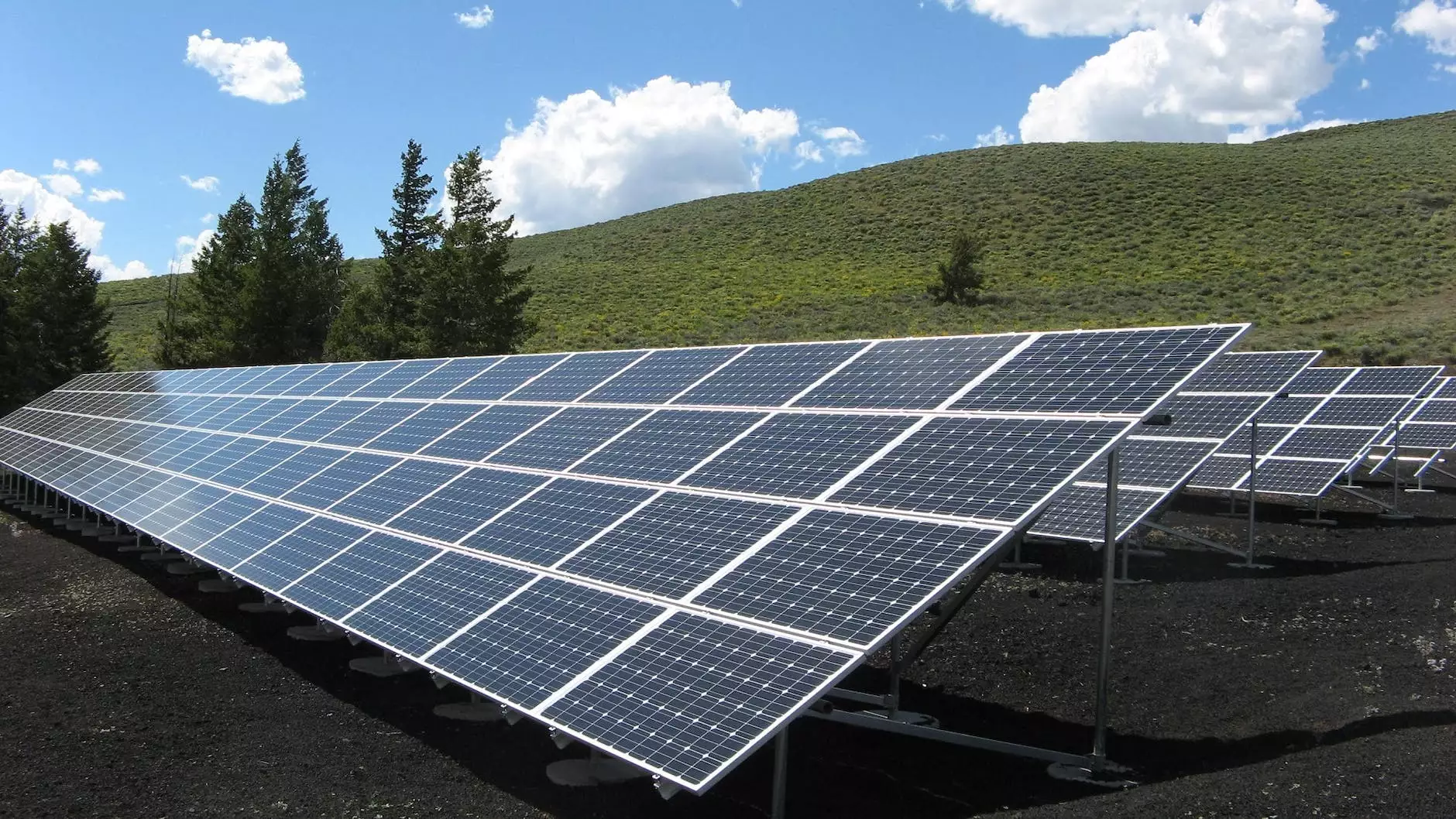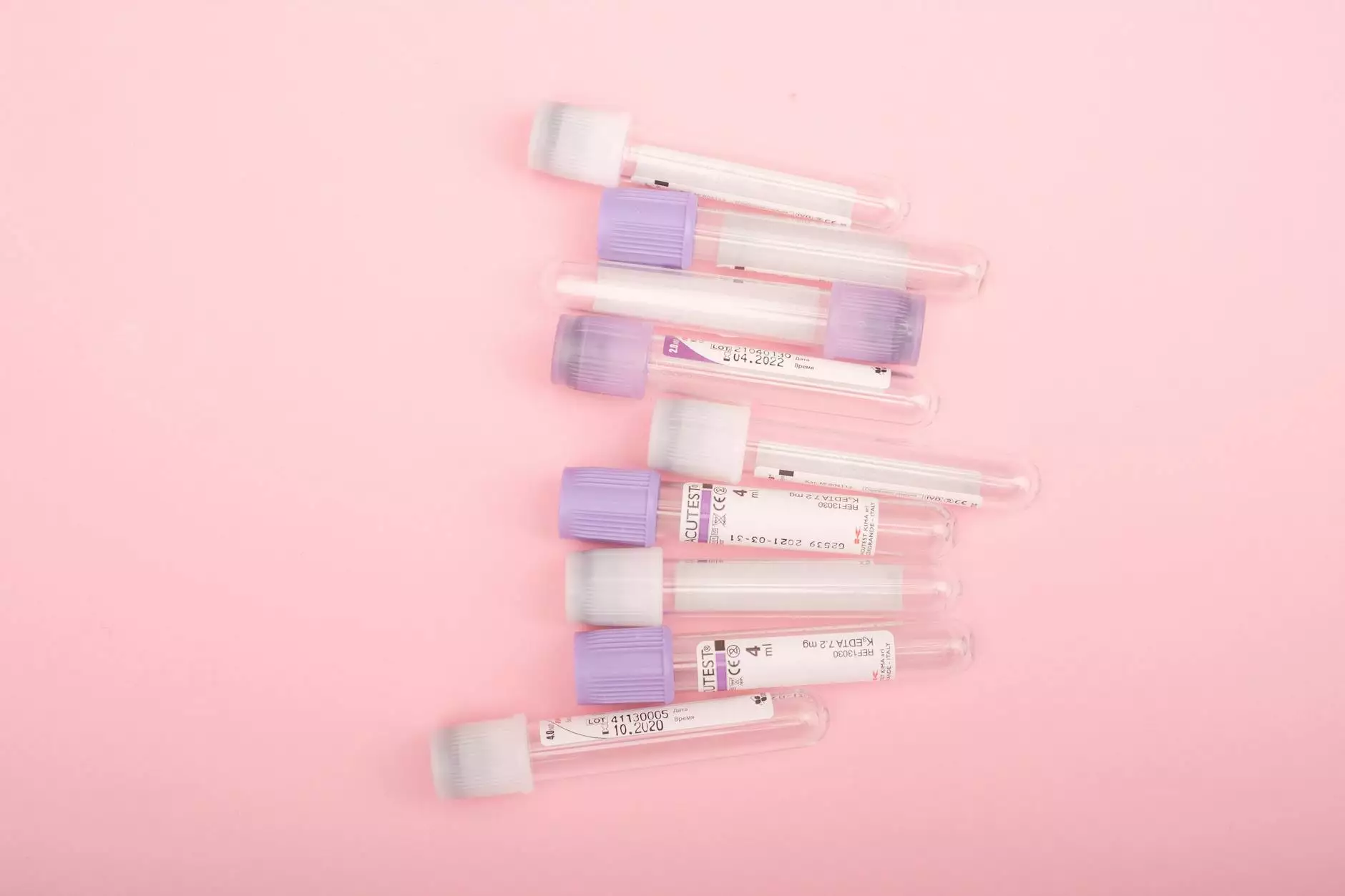The Power of Solar: A Sustainable Future with Solar Power Inverters

Introduction
Welcome to Ainegy.com, the leading resource for health and medical professionals, including nutritionists, seeking eco-friendly solutions. In this article, we will delve into the world of solar power inverters, exploring their benefits, functionalities, and how they contribute to a greener and more sustainable future.
Understanding Solar Power Inverters
Solar power inverters play a crucial role in harnessing the abundant energy provided by the sun. They are an essential component of any solar energy system, converting direct current (DC) energy generated by solar panels into usable alternating current (AC) energy that powers our homes, businesses, and communities.
The beauty of solar power inverters lies in their ability to transform the sun's energy into a form that can be used to run various electrical appliances. By intelligently converting and managing energy flows, they allow us to take advantage of the sun's renewable power source and reduce our dependence on non-renewable fossil fuels.
The Advantages of Solar Power Inverters
Investing in solar power inverters offers numerous advantages, both economically and environmentally. Let's take a closer look at some of the key benefits:
1. Energy Cost Savings
Embracing solar power inverters enables substantial energy cost savings in the long run. As the sun's energy is free, once you've installed a solar system with an inverter, you can significantly reduce or eliminate your monthly electricity bills. Over time, this can lead to substantial financial savings, making solar power inverters a wise investment for both businesses and individuals.
2. Environmental Impact
Solar power inverters contribute to a cleaner and greener environment. By opting for solar energy and reducing reliance on fossil fuels, we can combat climate change and reduce harmful carbon emissions. Solar power is a renewable energy source, and using it through efficient inverters helps preserve our planet for future generations.
3. Energy Independence
Solar power inverters provide a means of energy independence. By generating your own electricity, you become less reliant on the traditional power grid, which can sometimes be unreliable or prone to outages. With a solar energy system and an inverter, you can enjoy a consistent and uninterrupted power supply, even during grid failures or emergencies.
4. Return on Investment
A solar power inverter is not just an expenditure; it's an investment. Installing a solar system with an efficient inverter increases the value of your property. Additionally, many countries offer incentives, such as tax credits or feed-in tariffs, to encourage the adoption of renewable energy systems. Therefore, investing in solar power inverters can provide a substantial return on investment over time.
How Solar Power Inverters Work
Solar power inverters are designed to convert the DC energy produced by solar panels into AC energy. This conversion process involves several stages, each crucial for optimizing energy efficiency and ensuring a steady power supply.
1. PV Array
The photovoltaic (PV) array consists of multiple solar panels that absorb sunlight and convert it into DC electricity. These panels are typically installed on rooftops or in open spaces where they can capture the most sunlight.
2. MPPT Charge Controller
The Maximum Power Point Tracking (MPPT) charge controller allows the solar power inverter to extract the maximum available power from the PV array. It continuously adjusts the electrical load to match the current sunlight conditions, ensuring optimal energy conversion.
3. DC to AC Conversion
Solar power inverters employ advanced electronics and power semiconductor devices to convert the DC electricity generated by the PV array into AC electricity. The inverter synchronizes the frequency and voltage of the AC output with the local utility grid, making it capable of powering electrical devices and feeding excess energy back to the grid.
4. Monitoring and Control
Modern solar power inverters come equipped with built-in monitoring and control features. These allow users to track the performance of their solar energy system, monitor energy production, and identify any potential issues or maintenance requirements. Some inverters also offer remote monitoring capabilities, providing convenience and peace of mind.
The Future of Solar Power Inverters
Solar power inverters have come a long way in terms of efficiency, reliability, and integration within smart grid systems. As technology continues to advance, we can expect further innovations in solar inverter design, making them even more efficient, compact, and cost-effective.
The integration of energy storage solutions, such as batteries, with solar power inverters is another exciting avenue for future development. This combination will enable users to store excess solar energy for use during periods of low sunlight or even during grid outages, maximizing self-consumption and further reducing dependence on the traditional power grid.
Conclusion
Solar power inverters are the backbone of solar energy systems, offering numerous advantages and paving the way for a sustainable future. With their ability to convert sunlight into usable electricity, these inverters provide energy cost savings, reduce environmental impact, offer energy independence, and provide a positive return on investment. As technology continues to advance, solar power inverters are poised to play an even greater role in transforming our energy landscape.
Discover the potential of solar power inverters today. Join the sustainable revolution and make a positive contribution to our planet's future. Visit Ainegy.com to explore our expert solutions for health and medical professionals, including nutritionists.
solar power power inverter








